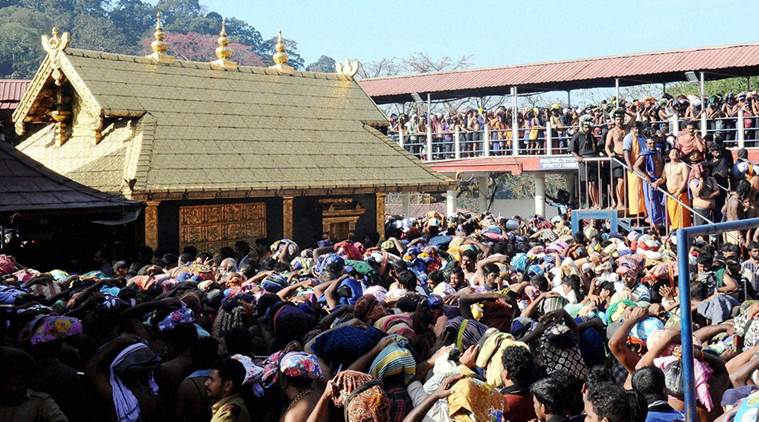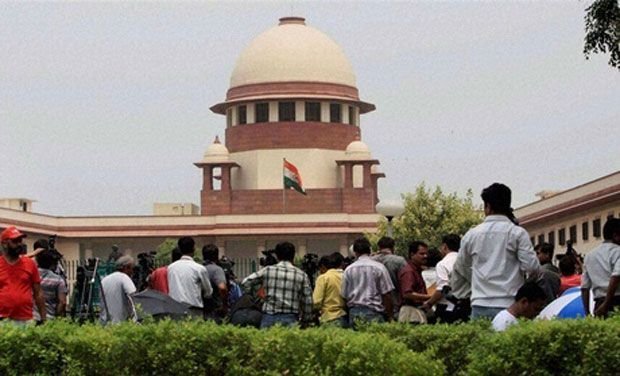The Supreme Court on Monday reserved its verdict on whether to refer the matters pertaining to the ban on entry of women aged between 10 to 50 years at Kerala’s Sabrimala temple to its constitution bench.
A three-judge bench headed by Justice Dipak Misra said it would deliver a judgement regarding the “complexities of the issue” and may refer the matter to a larger bench for its consideration. “We have heard the counsel appearing for the parties. Judgement reserved on the question whether the matter should go to a larger bench or not,” the bench, also comprising Justices R Banumathi and Ashok Bhushan, said.
The bench asked the parties, including the petitioners, respondents and the amicus curiae, to furnish within a week their written submissions and questions which may be referred to a five-judge constitution bench.

“Counsel for the parties shall file written submissions/ questions, which should fall under the constitutional framework, that is likely to be referred to the larger bench,” the apex court said. The management of the Sabarimala temple, located on a hilltop in the Western Ghats of Pathanamthitta district, had earlier told the apex court that the ban on entry of women aged between 10 and 50 years was because they cannot maintain “purity” on account of menstruation.
The court is hearing a plea challenging the practice of banning entry of such women in the temple. During the hearing on Monday, the bench observed: “Regarding the complexity of the issue, we will deliver a judgement. We can refer the matter to a constitution bench. It (judgement) will create a background for the constitution bench. You can give us the issue which are to be dwelt upon”.
Senior advocate K K Venugopal, representing the Travancore Devaswom Board which manages the hill-top shrine, argued that the alleged discrimination was not between men and women but between women and women.

He said the matter involves interpretation of Articles of the Constitution and argued that, in this matter, Article 26 of the Constitution would prevail over Article 25. Article 26 relates to the freedom to manage religious affairs subject to public order, morality and health and states that every religious denomination or any section shall have the right to manage its own affairs in matters of religion, while Article 25 speaks of freedom of conscience and free profession, practice and propagation of religion.
He said that according to customs, Lord Ayyappa, being a bachelor, had said that women would not enter the temple and it was an “age-old” practice that was being followed.
However, the counsel, who is opposing the ban on entry of women, said that fundamental rights of a person, irrespective of the gender, cannot be violated.
(Feature image source: PTI)